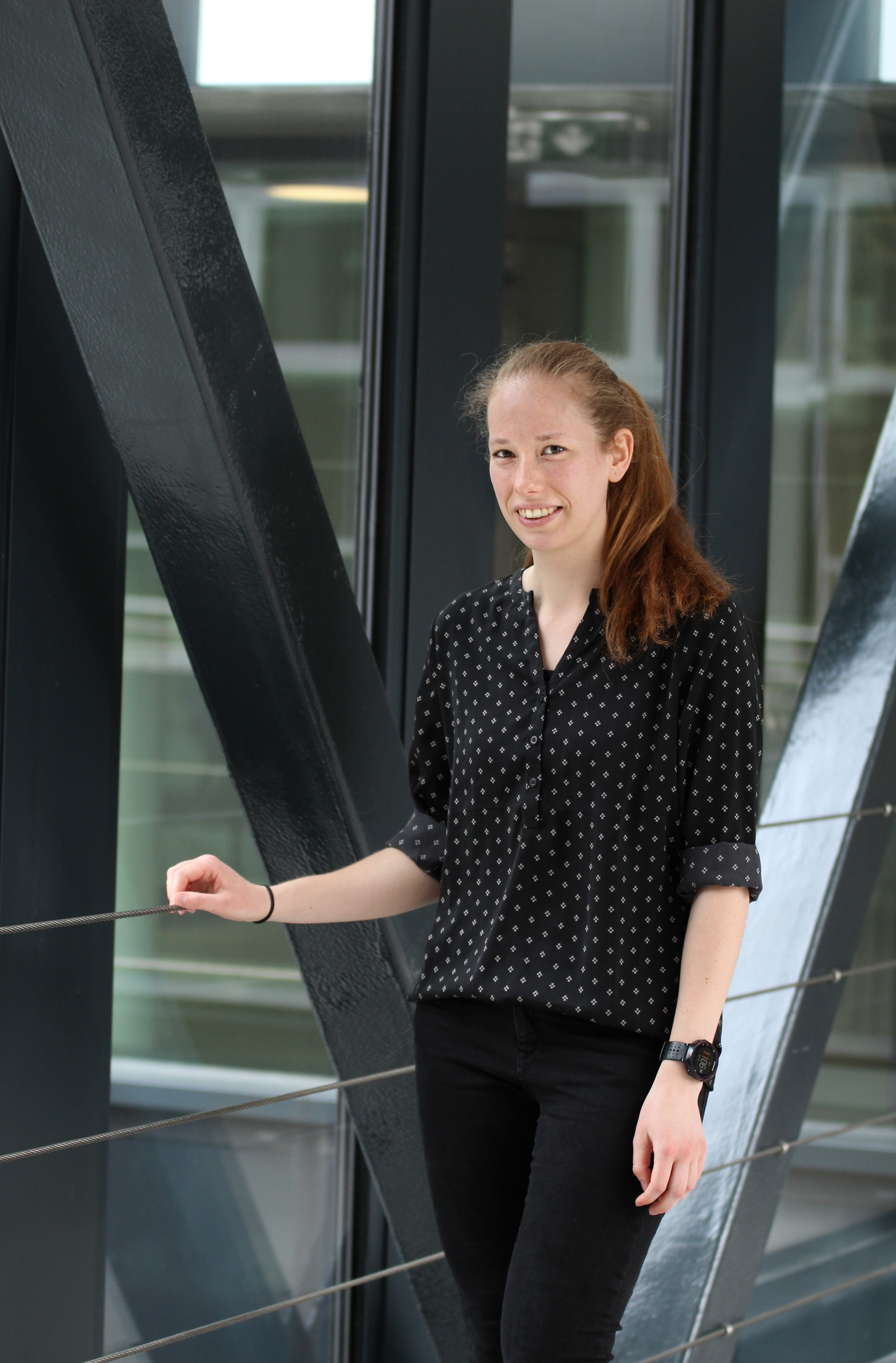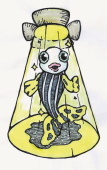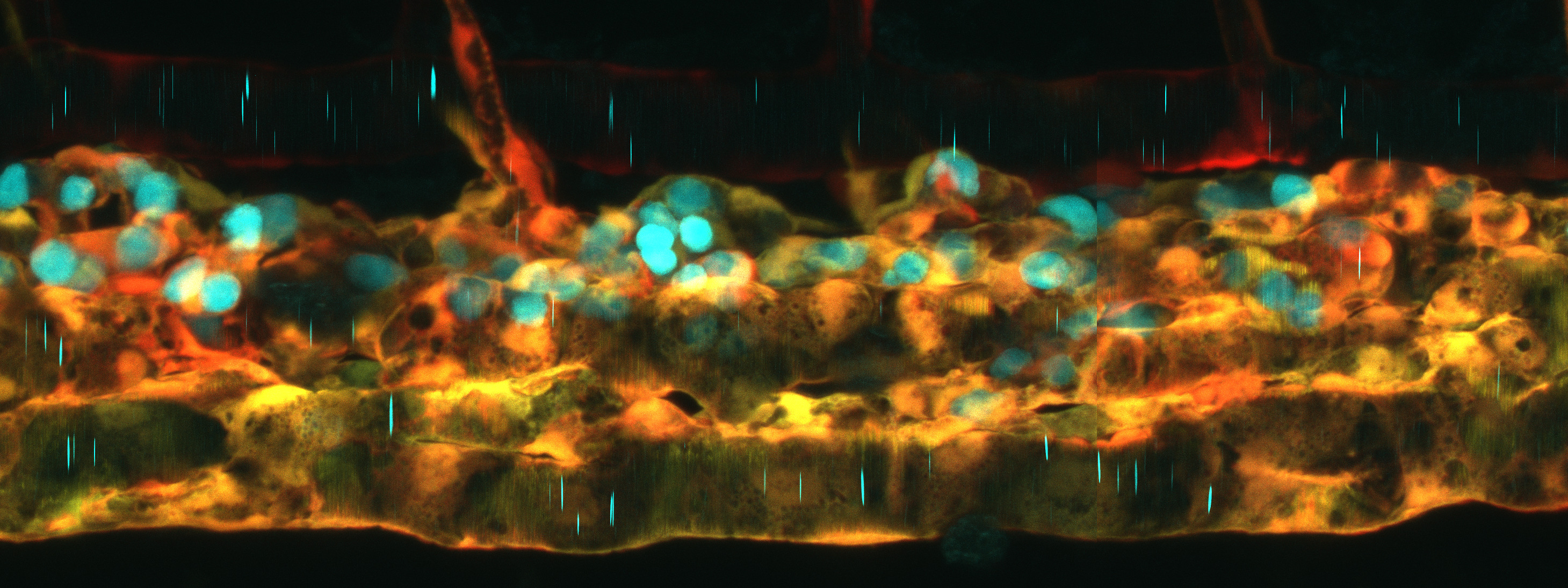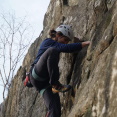NewsSplash Issue 10 Summer 2021
Message from the outgoing President
Beautiful Imaging!
|
||||||||||||||||||
 |
 |
| President-Elect: Kathleen E. Whitlock, PhD Valparaiso, Chile |
Secretary: Kristen Kwan, PhD Salt Lake City, Utah, USA |
IZFS Regional Representatives
 |
| Asia & Pacific Representative: Kirsten Sadler Edepli, PhD Abu Dhabi, UAE |
 |
 |
| Europe & Mediterranean Representative: Tanya T. Whitfield, PhD Sheffield, UK |
Europe & Mediterranean Representative: Stephen Neuhauss, PhD Zurich, Switzerland |
 |
 |
| US & Canada Representative: Ashley Bruce, PhD Toronto, Ontario, Canada |
US & Canada Representative: Christian Mosimann, PhD Aurora, Colorado, USA |
Congratulations to the newly elected leaders of the society! The newly elected Board members began their term on July 1, 2021. Dr. Whitlock will serve as President-Elect for one year before ascending the President for one year, then Immediate Past President for one year. Drs. Kwan, Sadler-Edepli, Whitfield, Neuhauss, Bruce and Mosimann will serve three-year terms in their respective roles.
A sincere thank you to our 2018-2021 Board Members who rotated off at the end of June. Click here to read more.
2021 Christine Beattie Award Winner
 IZFS is excited to announce the 2021 Christine Beattie Award winner, Jessica Stock! The award recognizes junior investigators who demonstrate excellence in the field of zebrafish research and exhibit promise as a future leader in the zebrafish field.
IZFS is excited to announce the 2021 Christine Beattie Award winner, Jessica Stock! The award recognizes junior investigators who demonstrate excellence in the field of zebrafish research and exhibit promise as a future leader in the zebrafish field.
Jessica was awarded based on her IZFC presentation “A self-generated Toddler gradient directs mesodermal cell migration during zebrafish gastrulation”. (If you registered for the IZFC meeting, you can see her presentation here.)
Learn more about the Christine Beattie Award here
Member News
Click here to read about fellowships, awards and honors bestowed on zebrafish community members.
Meet the Researcher
|
|
|
Click here to read the Meet the Researcher features.
Science Spotlight
Science Spotlight is a new section of the News Splash in which trainee-writers publish an article covering a recent high-impact zebrafish publication under the mentorship of IZFS board members Cecilia Moens and Karuna Sampath. The Spring 2021 Science Spotlight articles are written by Leo Volkov, a Neuroscience PhD student in the laboratory of Joseph Corbo at Washington University, St. Louis, and Sydney Wyatt, a PhD student in the lab of Bruce Draper at UC Davis. If you are interested in writing a Science Spotlight article for a future issue of the News Splash, contact Cecilia Moens (cmoens@fredhutch.org) and/or Karuna Sampath (K.Sampath@warwick.ac.uk)
It's Just a Phase: Defining Phases of Primordial Germ Cell Formation
By Sydney Wyatt
Some argue that germ cells are the most important cell in the body because they alone naturally pass on genetic material to the next generation. Thus, determining what makes a germ cell “decide" to be a germ cell is an important line of inquiry. In sexually reproducing animals, germ fate, as opposed to somatic fate, can be predetermined by oocyte-derived factors contained in the germ plasm, or it can be triggered by the zygotic genome. In zebrafish, the germ plasm is required for germ cell fate determination. However, how early PGCs diverge from somatic cells during their formation beyond the allocation of the required germ plasm remained murky until the recent investigation by Fabio M. D’Orazio et al.
- continue reading -
BLITZing through protein interactions in Zebrafish
By Leo Volkov
To probe the function of a novel protein, it is crucial to identify the interacting partners of the protein of interest. Ideally, one could identify not only strong, direct protein-protein interactions, but also transient and weak interactions. The use of proximity-dependent biotin labeling (BioID) allows one to identify such interactors by making use of biotin ligases fused to a protein of interest. This ligase attaches biotin to all proteins within 10nm. Biotinylated proteins can then be isolated by Streptavidin affinity-based enrichment and identified using various proteomic approaches. However, a fundamental limitation to using this approach in zebrafish has been the need to create transgenic lines in which the protein of interest is directly tagged with the biotin ligase. A novel approach from the group of Thomas E Hall and Robert G Parton, termed BLITZ (Biotin Labelling In Tagged Zebrafish), aims to circumvent this limitation (Xiong et al., 2021) (https://doi.org/10.7554/eLife.64631).
- continue reading -
Environmental Sustainability Spotlight
A sustainable environment guarantees that there will be natural resources for the future and is one of the biggest challenges for us all.
The Environmental sustainability Committee (ESC), as a part of IZFS, is a collective voice from the scientific community promoting sustainable practices in zebrafish science and society. The ESC provides strategic recommendations for the IZFS leadership to initiate the continuity of scientific research and activities, keeping in mind the environmental sustainability of our activity for the planet. The aims of ESC are to raise and spread awareness about environmental issues linked to our activities (research and interactions) by highlighting the impact of research and conferences on environment, and to encourage efforts that would minimize the damage to ecosystems.
- continue reading -
Science and Society
Information, Time and Infinity
The sun illuminates the Andes Mountains, setting them alight with colors that have no names, dancing above the grey-blue waters of Valparaiso’s bay. I gaze at the view, resting my eyes…it is beautiful, captivating. How many papers have I a pored over today? How much do I remember? How much should I remember? My brain and I are caught in the midst of a battle, a battle of “targets” versus “distractors”, caught in the binary world of good/bad, pleasant/unpleasant, that draws our attention too easily. I drag my attention back to the task at hand (target) and start to riff through seemingly endless pages of supplementary tables and figures: it is hard to convince my binary brain to ignore the beautiful view (distractor) and focus on this task. As scientists have told us, our brains have difficulty letting go of something that has caught our attention. The internet/social media maximizes conserved characteristics of nervous system function and we fight back, unknowingly or knowingly, trying to maintain our attention, sorting through information against a backdrop of distractors.
- continue reading -
Upcoming Events
The 7th Chinese Zebrafish Conference (CZFC)
July 20-23, 2021
Guiyang, Guizhou
Latin America Zebrafish Network (LAZEN)
Update on potential virtual course and rescheduled practical course
ZDM14
October 11-14, 2021
Durham, North Carolina, USA
Job Posts
To post to the IZFS Job Board you must be a member. Click here to join. If you have a job to post, please send an e-mail to info@izfs.org
Technician: University of Wisconsin-Madison
Madison, Wisconsin, USA
Posted 7/9/2021
Research Technician: Moens Lab
Seattle, Washington, USA
Poster 7/9/2021
Vice Editor-in-Chief: Chinese Society for Cell Biology/Cell Regeneration
Shanghai, China
Posted 7/7/21
Research Technician: John Rawls Lab
Durham, North Carolina, USA
Posted 7/6/21
Postdoctoral Position: Galperin Lan
Lexington, Kentucky, USA
Posted 7/6/21
Research Positions: University of Idaho
Moscow, Idaho, USA
Posted 7/2/21
Visiting Research Specialist: University of Illinois at Chicago
Chicago, Illinois, USA
Posted 6/24/21
Postdoctoral Positions: Sagasti Lab
Los Angeles, California, USA
Posted 6/23/21
Research Fellow: UCL
London, United Kingdom, Europe
Posted 6/23/21
Research Assistant II: Philadelphia College of Osteopathic Medicine
Philadelphia, Pennsylvania, USA
Posted 6/14/21
PhD Student and Postdoctoral Positions: The Marín-Juez Lab
Montreal, Quebec, Canada
Posted 6/9/21
Postdoctoral Position to Study the Meninges and the Neurovascular Interface | The Weinstein Lab
Bethesda, Maryland, USA
Posted 6/7/21
Laboratory/Aquatics Technician: The Weinstein Lab
Bethesda, Maryland, USA
Posted 6/7/21
Postdoctoral Position in Angiogenesis and Lymphangiogenesis: The Weinstein Lab
Bethesda, Maryland, USA
Posted 6/7/21
Postdoctoral Position in the Epigenetics of Development: The Weinstein Lab
Bethesda, Maryland, USA
Posted 6/7/21
Postdoctoral Position: The Thyme Lab
Birmingham, Alabama, USA
Posted 6/2/21
Postdoctoral Position: Parsons Lab
Irvine, California, USA
Posted 5/13/21
Postdoctoral Position: Rutgers University
Piscataway, New Jersey, USA
Posted 5/11/21
Postdoctoral Research Position: Harvard University
Cambridge, Massachusetts, USA
Posted 4/30/21
Senior Laboratory Research Scientist: The Francis Crick Institute
London, United Kingdom, Europe
Posted 4/26/21
Postdoctoral Research Position: University of Wisconsin-Madison
Madison, Wisconsin, USA
Posted 4/9/21
Have an idea for the newsletter or would like to contribute? Contact us at info@izfs.org! We'd love to hear from you!










